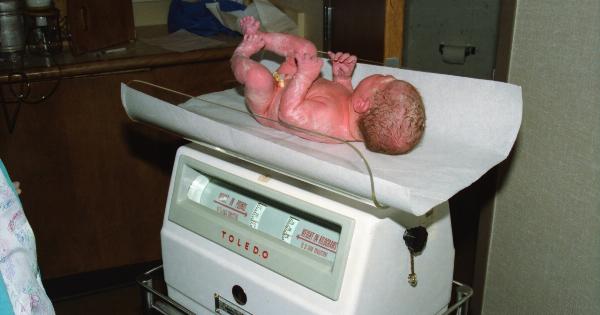When a woman becomes a mother, one of the biggest decisions she has to make is how to feed her baby. Exclusive breastfeeding is highly recommended for the first six months of a baby’s life.
There are numerous benefits of exclusive breastfeeding in the first six months of life. This article explores the importance of exclusive breastfeeding.
H2: Boosts Immunity
Breast milk is the perfect food for babies. It contains all the nutrients a baby needs in the first six months of life. In addition, it contains antibodies that help protect your baby from infections and illnesses.
Breastfed babies tend to have stronger immune systems compared to those who are formula-fed. They are less likely to suffer from respiratory infections, ear infections, and other illnesses.
H2: Supports the Development of the Baby’s Gut
Breast milk contains oligosaccharides, which are complex carbohydrates that support the growth of good bacteria in the baby’s gut.
This helps to establish healthy gut flora, which is important for proper digestion, absorption of nutrients, and the immune system. There is also some research that suggests that breast milk can decrease the risk of developing digestive problems later in life.
H2: Promotes Bonding
Exclusive breastfeeding provides an opportunity for mothers to bond with their babies. Breastfeeding triggers the release of oxytocin, a hormone that promotes feelings of love and bonding between mother and baby.
The act of breastfeeding also helps to soothe and comfort babies, which can promote a sense of security and trust.
H2: Improves Brain Development
Breast milk contains long-chain fatty acids that are important for the development of the baby’s brain. There is evidence that breastfed babies score higher on cognitive tests later in life compared to those who were formula-fed.
Breast milk also contains high levels of cholesterol, which is important for the development of the brain and nervous system.
H2: Reduces the Risk of Sudden Infant Death Syndrome (SIDS)
Exclusive breastfeeding has been shown to reduce the risk of SIDS.
The exact reason for this is not fully understood, but it is thought that breastfed babies have better regulation of their breathing, heart rate, and body temperature, which may play a role in reducing the risk of SIDS.
H2: Improves Maternal Health
Exclusive breastfeeding is not only good for babies but also for mothers. Breastfeeding releases hormones that help the uterus to contract and return to its pre-pregnancy size.
This can reduce postpartum bleeding and the risk of developing breast and ovarian cancer. Breastfeeding also burns calories, which can help mothers to lose the weight gained during pregnancy.
H2: Cost-Effective
Exclusive breastfeeding is cost-effective compared to formula feeding. Breast milk is readily available and does not require any preparation. In addition, breastfeeding mothers save money on formula, bottles, and other feeding accessories.
H2: Convenient
Breastfeeding is convenient, especially for mothers who are always on the go. Breast milk is always available, and there is no need to worry about carrying bottles of formula or sterilizing bottles and feeding equipment.
H2: Builds Resilience
Breastfeeding provides a safe and secure environment for the baby, which can promote resilience. Infants who are breastfed tend to cry less and are less likely to suffer from anxiety, and depression later in life.
H2: Provides a Sense of Pride
Motherhood is a challenging journey, and exclusive breastfeeding is not always easy. However, mothers who are able to exclusively breastfeed their babies for six months or longer feel a sense of pride and accomplishment.
Exclusive breastfeeding provides mothers with a unique opportunity to nurture and nourish their babies.
Conclusion
Exclusive breastfeeding is highly recommended for the first six months of a baby’s life. It provides numerous benefits to both babies and mothers.
Breast milk contains all the nutrients a baby needs, boosts immunity, supports the development of the baby’s gut, improves brain development, and reduces the risk of SIDS. In addition, exclusive breastfeeding is cost-effective, convenient, builds resilience, and provides a sense of pride.



























